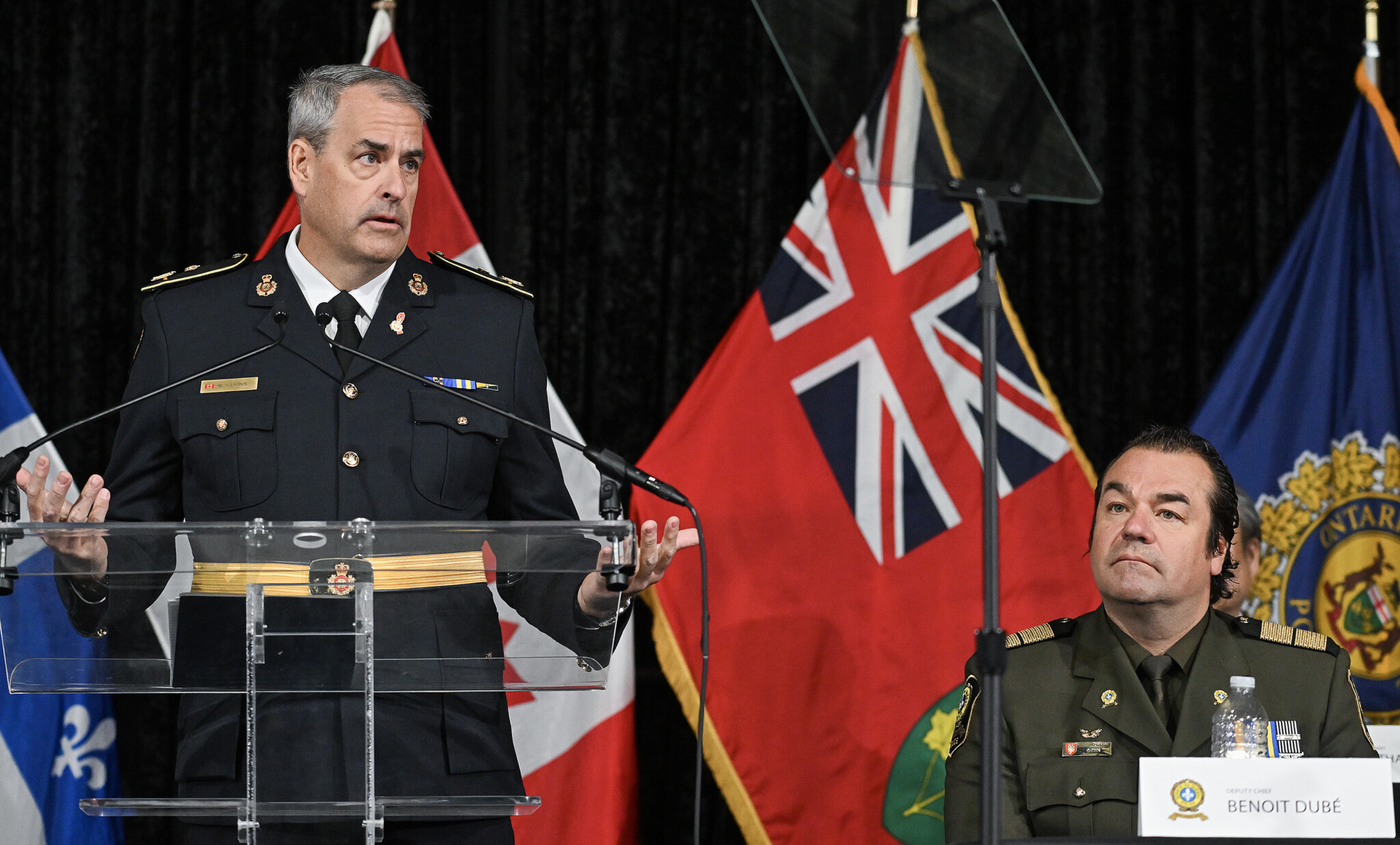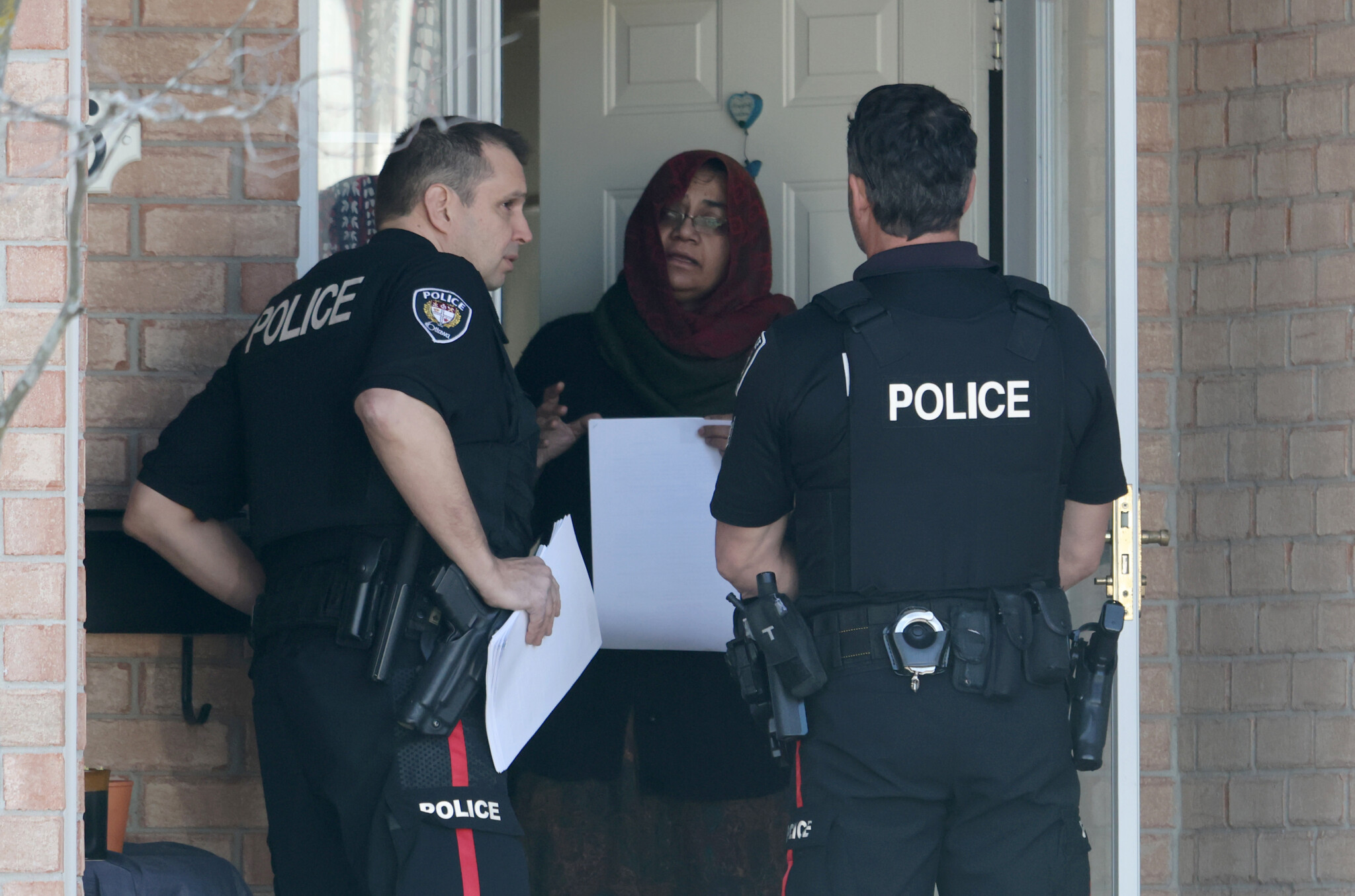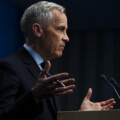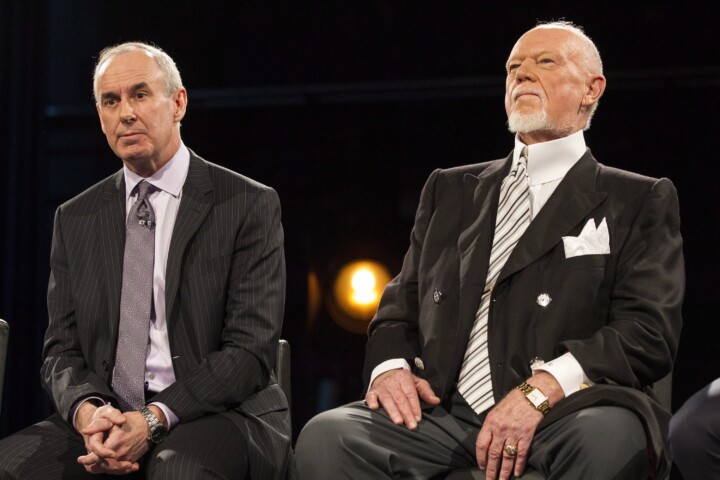Once an issue hits the suburbs, federal politicians tend to start paying attention—or at least they should if they have a long-term interest in staying elected. Suburbs are not only often swing ridings, but full of families, high-earning professionals, and seniors who are known to turn out to polls.
The trouble for politicians often is, by the time a historically urban crisis creeps into the suburbs, it’s festered so long, it’s now a systemic failure. This is the case with Canada’s suburban crime surge.
For years, many Canadian voters, particularly those who don’t live in cities, were willing to accept localized crime spikes in urban communities. But lately, those same crimes—from violent theft to kidnappings, homicides, gang activity, and terrorism–are making their way into quiet suburban neighbourhoods.
Municipal police forces are increasingly raising the alarm. The latest headlines out of the GTA’s York Region in particular are truly shocking. High-profile reports of home invasions, murders, and missing people, which used to be rare, are becoming more frequent.
In a recent alleged first-degree murder of a Markham realtor, the suspect successfully fled to Hong Kong in August. Border officials confirmed, “where he is after that, nobody knows.”
In July, York Region Police and the RCMP thwarted an alleged terrorist attack when they arrested two men in a Richmond Hill hotel, one of whom had previously starred in a violent ISIS propaganda film. He had recently been granted Canadian citizenship.
York Region Police also report, that since the start of this year, there’s been a 92 percent increase in shootings and a 106 percent spike in carjackings (with carjackings rising 400 per cent over five years).
York Region isn’t alone or an outlier. Last week, a small Quebec town made international headlines when a Pakistani citizen was charged by the FBI for allegedly plotting a terror attack to kill Jews in New York City on October 7, the one-year anniversary of Hamas’ horrific attacks against Israel. He was found to be on a Canadian student visa.
This week, Halton Regional Police, which oversee the suburbs of Burlington, Oakville, Milton, and Halton Hills, Ont., charged and issued Canada-wide warrants for a group of Algerian nationals alleged to be part of an organized auto theft ring responsible for over 40 thefts totalling at least $3 million. Police say the suspects operated between the GTA and Quebec.
Crime is spreading across the country, including to suburbs of Calgary and even the suburbs of Halifax.
The sort of things that “just don’t happen here” now happen regularly in these neighbourhoods, from coast to coast. And it’s not just a flukish case of municipalities dropping the ball en masse.
Could municipal police be given more resources, funding, and training on dealing with the new types of crime they face? In many cases, yes, they need it. Provinces also need to step up to the plate with concrete plans to surveil and tackle organized crime in suburban and rural communities, which often spans multiple jurisdictions.
However, at the top of the pyramid, spiking suburban crime is the direct result of years of national security neglect by the federal government. Under Prime Minister Trudeau especially, the Liberals have never shown much interest in the topic and, worse, the party’s more leftist strains appear to think strong national security is incompatible with social progressivism.
In reality, the two shouldn’t be at odds, founded in the same belief that Canadians of all stripes deserve to live free of violence, harassment, and the type of intimidation and organized crime more commonly associated with corrupt authoritarian regimes.
A review of the types of crimes and charges laid, as well as law enforcement statements to the press, strongly suggest the bulk of this surge doesn’t just come down to random individual crimes. Suburban home invasions, kidnappings, and homicides are often linked to transnational crime syndicates.
Car thefts aren’t targeted in the same manner, but are also largely intertwined with international organized crime rings. Terrorism and hate crimes are sponsored by overseas terrorist organizations and authoritarian regimes, who increasingly work together to sow fear and chaos.
These aren’t so much cases of individual ‘bad apples,’ but policy failures through and through. Our federal government has systematically failed to, and in some cases deliberately chosen not to, sufficiently vet newcomers, strengthen our border security in line with modern needs, protect our national sovereignty from foreign interference, adequately enact and enforce sanctions, remove bad actors from Canadian society, and prosecute organized financial crime.

Deputy Commissioner Marty Kearns, Investigations and Organized Crime at the Ontario Provincial Police speaks during a news conference in Montreal, Wednesday, April 3, 2024. Ontario Provincial Police and the Canada Border Services Agency say they’ve seized 598 stolen cars that were destined for export at the Port of Montreal. Graham Hughes/The Canadian Press
The issue is so severe that our number one ally, the United States, is warning us with growing impatience. Over the last several years, they’ve piled on more and more pressure, including reports that Canada needs to do more to combat money laundering, criticism of the removal of visa rules for Mexican citizens, alarm over our screening of Palestinian refugees, and even allegedly ran a secret probe into the Chinese Communist Party’s (CCP) operations within our borders.
To list all our recent national security failures would exceed any reasonable word count, but it’s worth revisiting the highlight (or lowlight) reel to grasp the true scope of the problem.
Canada has long been criticized by its Iranian community and national security experts not only for allowing agents and criminals affiliated with the Islamic regime of Iran into the country, but failing to track them down and deport them after their presence became widely known. It took immense amounts of public and opposition pressure in Parliament for the Liberals to finally designate Iran’s Islamic Revolutionary Guard Corps (IRGC) a terrorist organization this June.
Since October 7, Canadians have watched as terrorist sympathizers, many funded and supported by malevolent foreign actors, continue to disrupt and polarize our society with impunity.
We allowed the CCP to set up and run de facto police stations within our borders, and continue to turn a blind eye to intimidation and harassment of Chinese immigrants. Politicians won’t so much as secure our electoral system from basic and obvious CCP-sponsored corruption, let alone take them to task for their behind-the-scenes support of transnational gangs and financial crime.
Notably, our country has not just one, but multiple types of financial crime named after it, including “snow-washing” and the “Vancouver Model.”
Meanwhile, we learned that federal government officers were instructed to bypass basic steps when vetting temporary foreign worker (TFW) applications. Moreover, after reports that it recently failed to count one million non-permanent residents, we’re still not even sure if the federal government even knows how many people it allowed into the country, let alone who they are or who they may be affiliated with.
The rot is deep and now stretches from our international borders, into our cities, and out to the suburbs. Fixing it will require the federal government to undergo a substantial attitude change when it comes to prioritizing national and local security. The first step is admitting the scale of the problem, which may be impossible to ignore much longer, as suburban voters awaken to their new reality.
If we don’t move quickly to rectify years of reckless policies, the harsh reality is that Canada may only be at the beginning stages of paying for our national security neglect.







